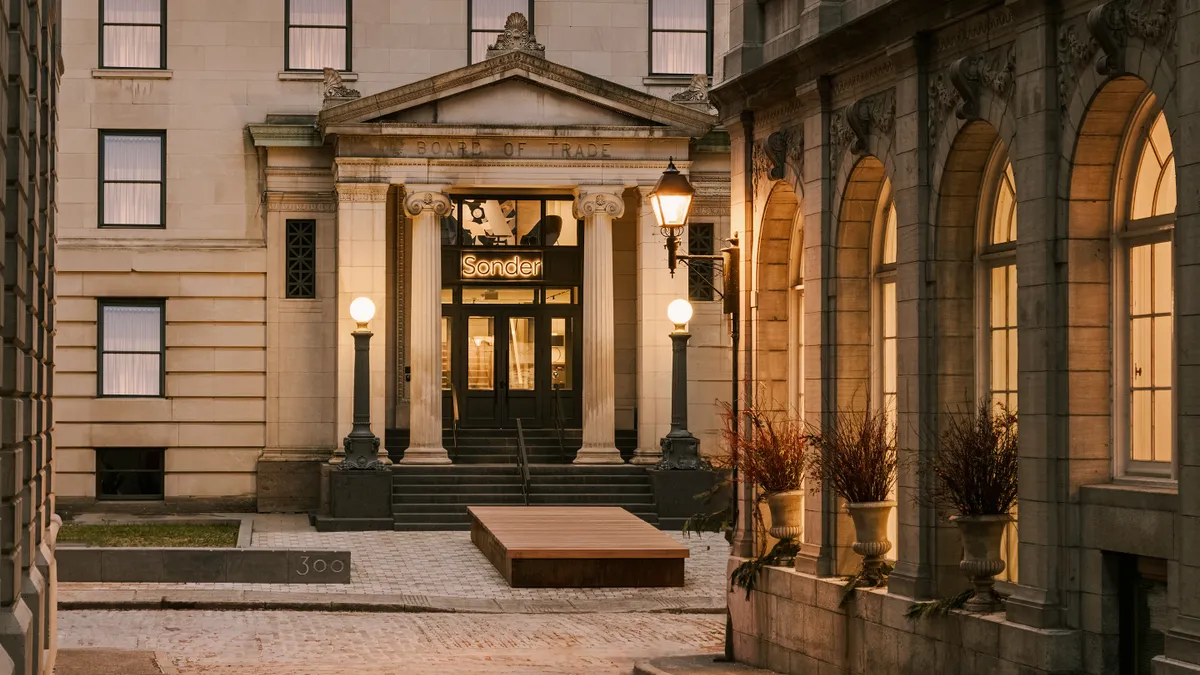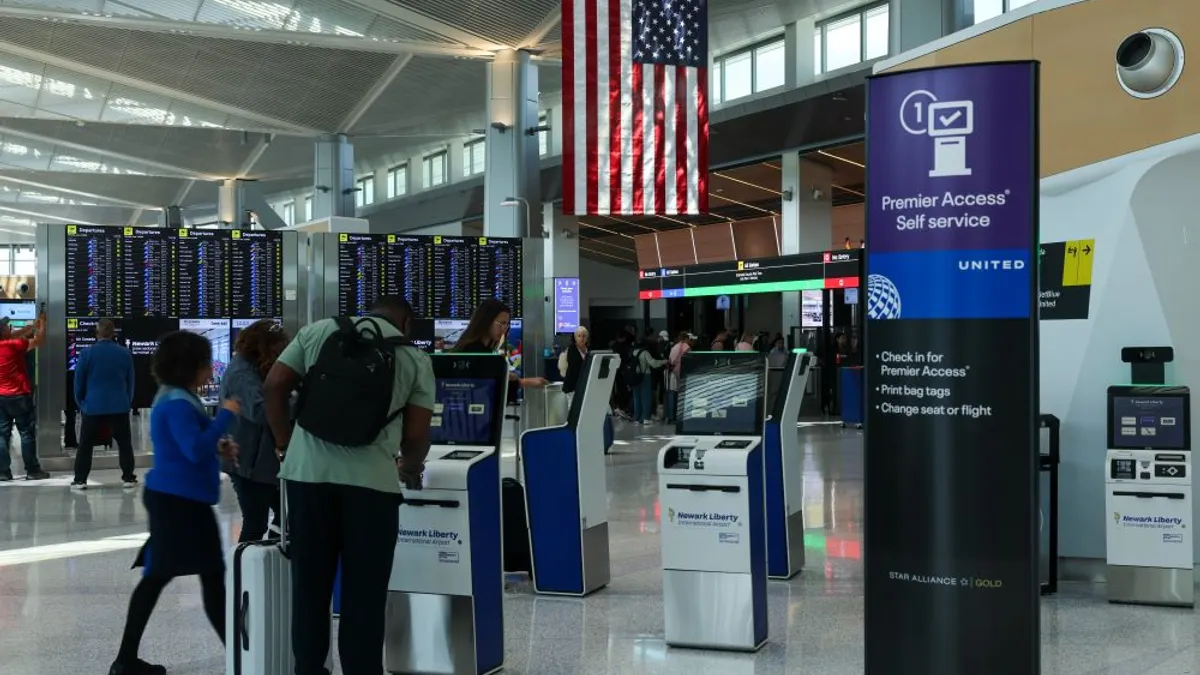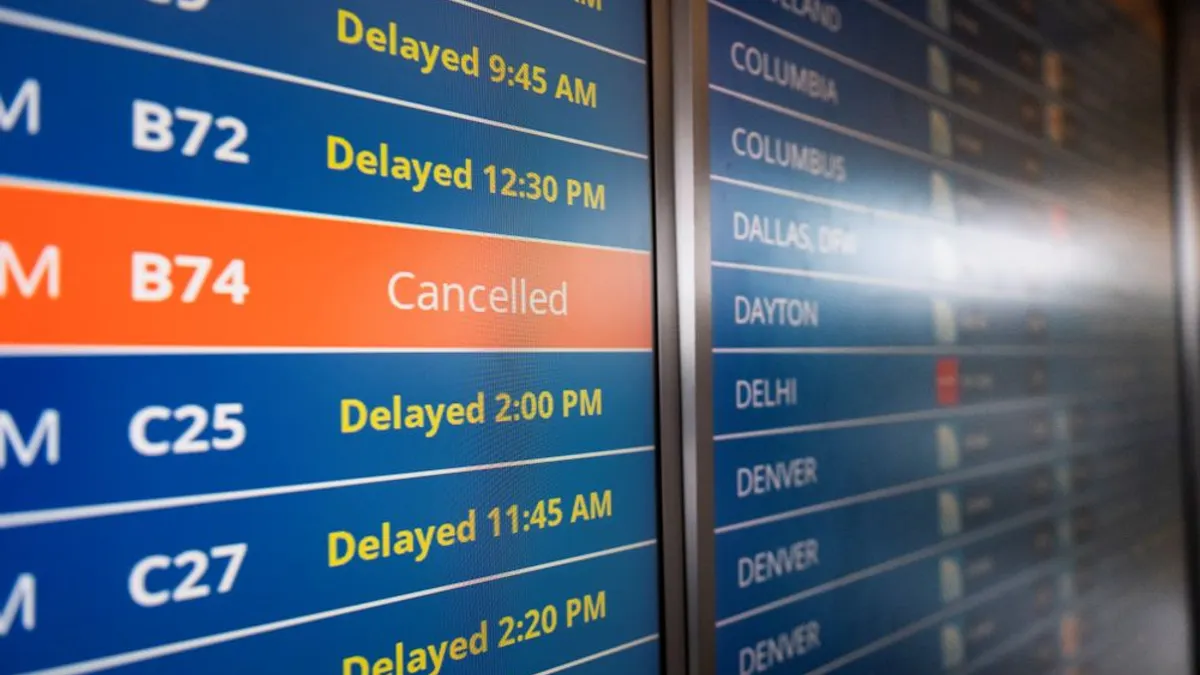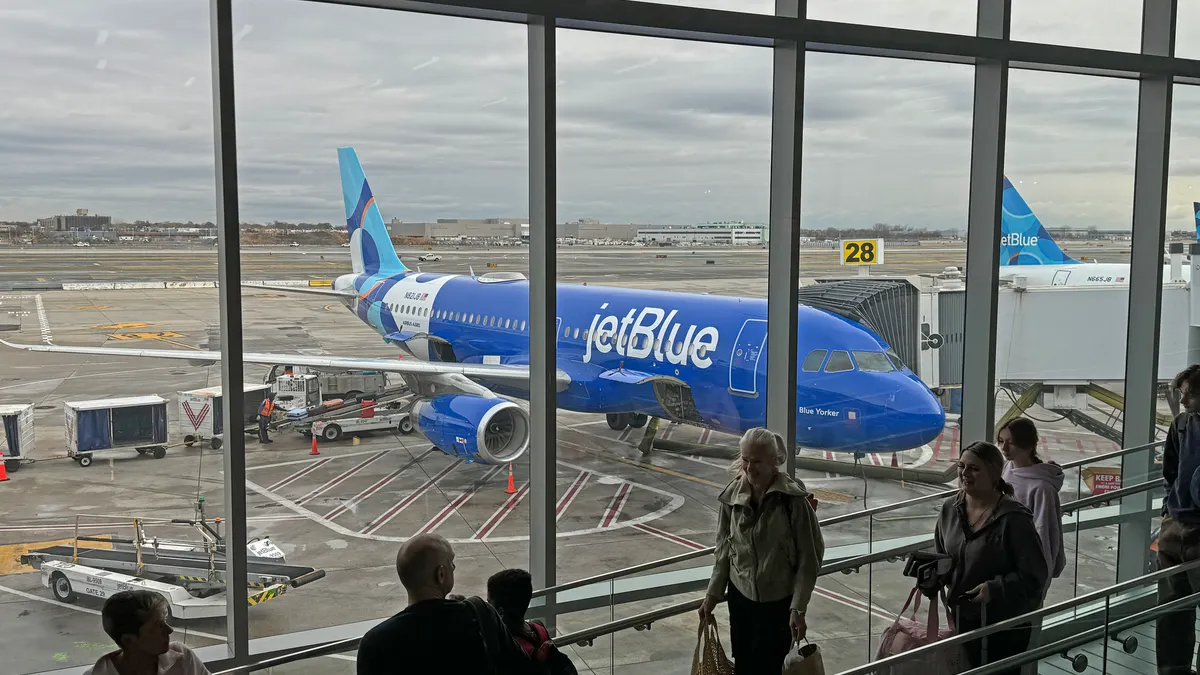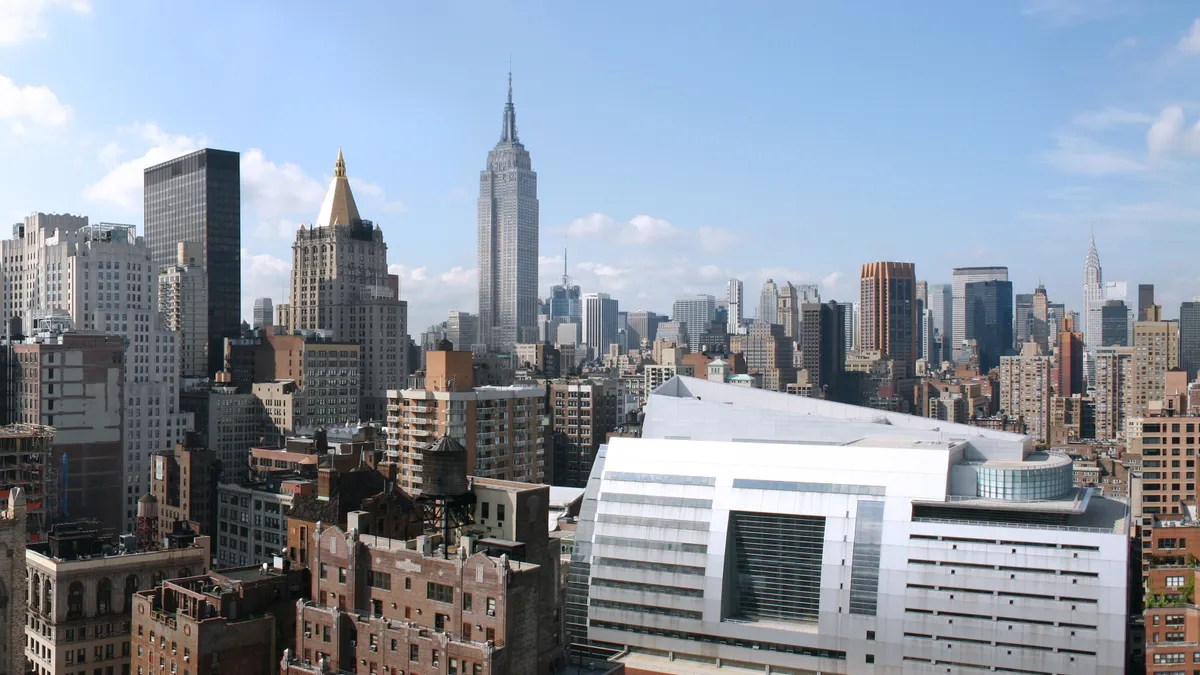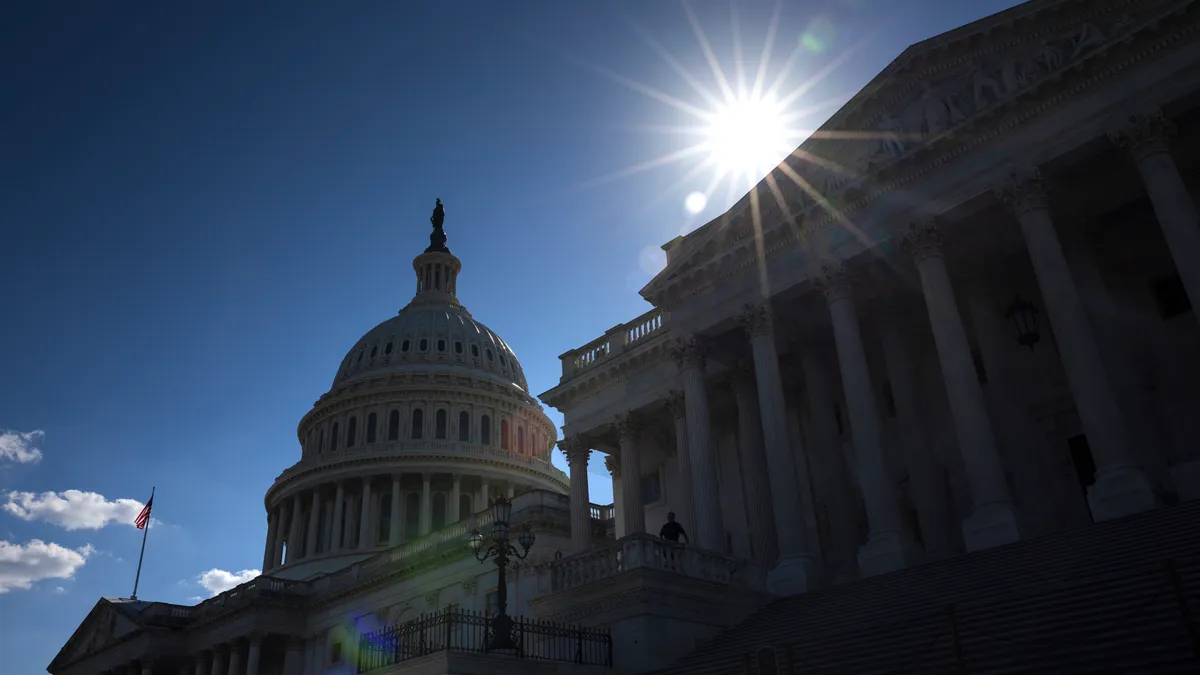Los Angeles has the highest population of people experiencing homelessness of any metropolis in the United States, at 65,111 — or nearly 17 people for every 1,000 — according to the Department of Housing and Urban Development’s Annual Homelessness Assessment Report.
Between 2020 and 2022, the number of people without housing in the city grew by 2%, according to HUD. Polls show that more than half of voters in Los Angeles say that tackling homelessness is their No. 1 concern, according to CNN, leading advocacy and local political groups to come up with solutions.
Joining the efforts to address the crisis is Unite Here, the hospitality union holding multiwave strikes at the region’s hotels.
The union, which represents more than 30,000 workers in Southern California and Arizona, is asking hotels to publicly endorse the Los Angeles Responsible Hotels Ordinance. The ordinance, which Unite Here raised enough signatures for to place on the city’s March 2024 ballot, guards against new hotel developments displacing affordable housing. But one aspect of the ordinance, in particular, is driving further divisions between hospitality union leaders and hotel industry executives: requiring hotels to house homeless people in their spare rooms.
The initiative
According to Unite Here, the Los Angeles Responsible Hotels Ordinance will ensure hotel developments don’t displace affordable housing and establish a program similar to the state-funded Project Roomkey, which gave over space in the area’s hotels to people without homes during the height of the pandemic.
“Hotels are frequently proposed for land that is equally suitable for housing development and thus crowd out sites that could be used to help alleviate the City’s need for affordable housing,” Unite Here wrote on its webpage about the Responsible Hotels Ordinance.
There are key differences, however, between the Responsible Hotels Ordinance and Project Roomkey. The latter, a pandemic-era initiative, sheltered approximately 10,000 homeless people across more than 30 hotels mostly dedicated to the purpose, which featured wraparound social services.
The Responsible Hotels Ordinance, if enacted, would require every hotel in Los Angeles to report its vacancies to the municipal government. Hotels would then be required to honor government-granted housing vouchers, which would pay them a market rate for the rooms. Voucher grantees would stay in the same hotels — whether budget or luxury — as guests.
Unite Here did not respond to Hotel Dive’s request for comment. But Kurt Petersen, co-president of Unite Here Local 11, told CNN: “By no means do we think this solves the homelessness crisis. But do hotels have a role to play… of course they do.”
Hoteliers’ response
Chip Rogers, president and CEO of the American Hotel & Lodging Association, called the measure “the worst idea we’ve ever heard.”
“Nothing about it makes sense to me,” said Rogers, speaking to Hotel Dive, adding that housing people in hotels not dedicated to that purpose could be “putting hotel workers in physical danger.”
“We're actually shocked that the organization that purports to represent these hotel workers would be the same organization that's pushing this terrible idea,” he said.
According to a new national poll commissioned by AHLA and conducted by Morning Consult that surveyed 2,203 U.S. adults between Sept. 18 and 20 of this year, 71% of respondents said they are concerned about the safety risks to hotel staff and guests that would be caused by the ordinance. Nearly the same number of respondents (72%) said they would be deterred from booking a hotel room in Los Angeles if “hotels there are forced to house homeless people next to paying guests.”
Last month, hotel owners held closed-door meetings at the Hilton Los Angeles Airport to discuss the ordinance’s potential threats to their business. The meetings were held amid the Greater Los Angeles Area Hotel Conference and Tradeshow, which was sponsored by the California Hotel & Lodging Association and Asian American Hotel Owners Association.
Posting about the discussions on LinkedIn, AAHOA President and CEO Laura Lee Blake said, “AAHOA looks forward to ongoing collaboration with local leaders and providing educational resources to highlight the potential impacts this could have on hoteliers if approved. We believe that together, we can find creative solutions to better support the unsheltered community.”
Rogers, meanwhile, believes that the ordinance is not only harmful, but also poorly thought out. He expressed skepticism that the reporting of nightly vacancies and distribution of vouchers would run smoothly. He also disapproved of its wording as a ballot measure, given it’s a two-pronged ordinance.
“At the end, you can just vote yes or no,” he said. “What if you're against the housing of the homeless in hotels, but for the building of additional housing — then what do you do?”
“Homelessness is a societal problem that deserves serious consideration,” he added. “What's being proposed here is not serious.”
A complex issue
In the past, hotels have proven to be a helpful resource in addressing homelessness.
“Vacant hotel rooms can provide a readily available and relatively safe and private space for unhoused people to stay,” said Elizabeth Bowen, an associate professor at the University of Buffalo who studies homelessness, noting the usefulness of Project Roomkey during the height of the pandemic.
“On the other hand,” she added, “hotel rooms are not a long-term solution to homelessness. A hotel room is not a permanent home.”
Instead, Bowen believes a better solution would be more investment in permanent — not impermanent — housing, such as provided apartments with supportive services. She described further investment in this as “critical to ending homelessness.” She also noted the importance of investment in “affordable housing in general.”
A lot will need to change to achieve that. Currently, Los Angeles is one of the most expensive renting cities in the U.S., with the average one-bedroom unit going for $2,460 per month, according to the Zumper National Rent Report.
Ultimately, cost of living is the main reason Unite Here Local 11 is striking in the first place, after a survey of its members found that more than half of its members had moved or were considering a move in the near future due to housing costs.
“Some of these workers are even unhoused,” said Los Angeles City Council member Hugo Soto-Martinez, in a statement in support of Unite Here. “This must change.”




